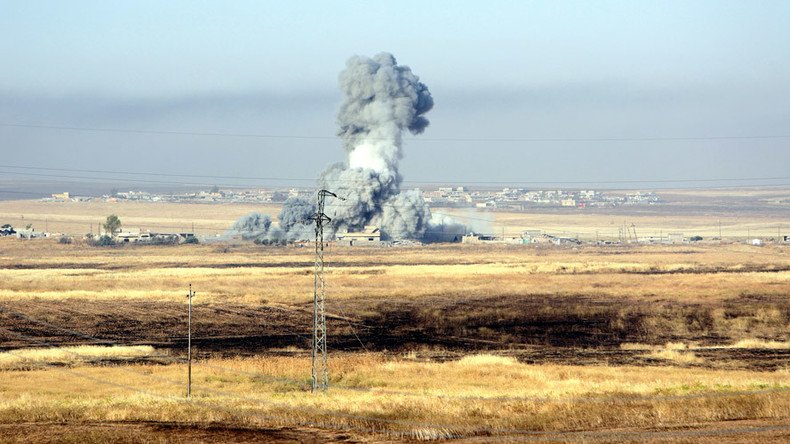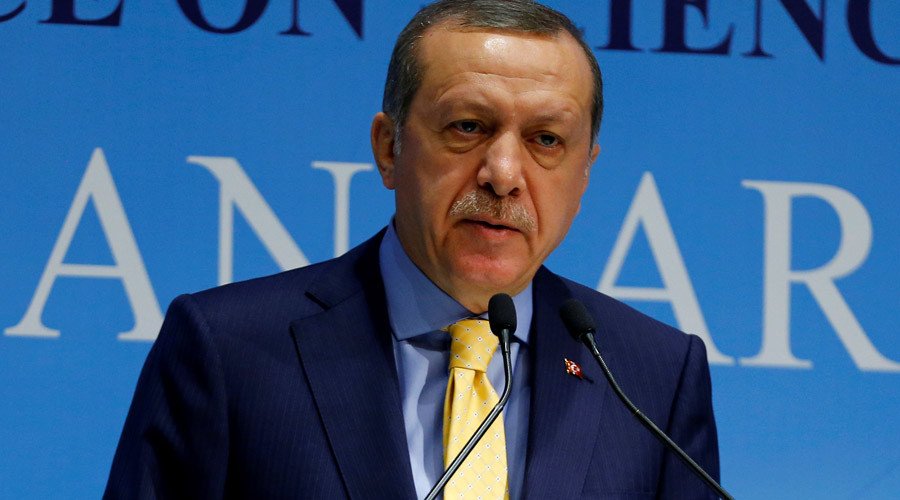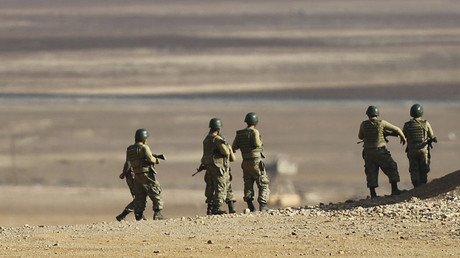Iraqi PM: ‘Turkey won’t take part in Mosul op under any circumstances’

Iraqi Prime Minister Haider Abadi has rejected any role for Turkish forces in the upcoming offensive on an Islamic State stronghold of Mosul, as tensions between supposed coalition partners escalate. Iraq says the Turks are violating its sovereignty.
“Turkish forces will not be allowed to participate in the liberation of Mosul under any circumstances,” Abadi said during a visit to the city of Karbala on Sunday, reported the news channel Al Sumaria.
Abadi, who was addressing senior local officials, also condemned Ankara for “violating Iraq’s sovereignty” by maintaining an official deployment of 150 troops in Bashiqa, a training base outside Mosul, as well as a staff of “military advisors” likely numbering in the thousands.
PM Al-Abadi was in Karbala today to meet with provincial officials, security commanders, religious leaders pic.twitter.com/hl12B3DMTu
— Haider Al-Abadi (@HaiderAlAbadi) October 9, 2016
Earlier this month the PM, who was elected two years ago, implied that Ankara’s refusal to remove its contingent – which is ostensibly there to protect Turkish instructors training anti-Islamic State (IS, ISIS/ISIL) fighters – and its recent parliamentary vote to extend its military mandate in Iraq and Syria, could lead to “an armed confrontation.”
Political squabbles over the spoils of Mosul, which was taken over by Islamic State in June 2014, have taken precedence over military tactics in the climax of the battle that has been going on since spring. These have focused on who will enter the city, which once housed 2.5 million people, how the Nineveh region the city is in will be divided, the status of the Kurds, and the division of the oil revenues.
The Sunni powers in the anti-IS coalition have been concerned about Shia militias entering the predominantly Sunni Arab city.
“I want to make it clear that Turkey, Saudi Arabia, Qatar and the Western coalition will not allow sectarian domination [of Mosul]. But there is a major question, who will then control the city? Of course, Sunni Arabs, Sunni Turkmen and Sunni Kurds,” Turkish President Tayyip Recep Erdogan said in an interview earlier this month.

A particular focus has been on the Iran-backed Popular Mobilization Units (PMU), which have been accused of mass retribution and other war crimes during previous operations, not least by Human Rights Watch.
Baghdad has promised that Mosul will not be left at the PMUs’ mercy, while the units themselves have spoken out not just against Turkey, but also the United States, which has been left playing peacemaker.
“[The PMU] have been useful in helping expel Islamic State from areas of Iraq, and they will continue to be useful,” US State Department spokesperson John Kirby said, when asked about the PMU role in the offensive, which will be backed up by US aerial bombardments.
The Kurdish peshmerga fighters, who have formed an effective temporary alliance with the PMU, have their own designs upon the region, with officials saying that territory taken from IS will form a part of the future Kurdish state, an outcome that is unwelcome in Baghdad, and particularly Ankara, which has repeatedly labeled them as terrorists.
“Thousands of peshmerga soldiers have sacrificed their lives in freeing our areas. Therefore, we must repay them,” said Sheikh Ali Rekan, the leader of a local clan, which has pledged allegiance to the Kurds.
The Kurds have also been locked in a dispute over its oil exports from northern Iraq. Kurdish authorities have been exporting oil from the rich local fields, many of which they took back from Islamic State directly, i.e. avoiding any contact with the Iraqi government that nominally controls this area.
Iraq has offered to share oil revenue in exchange for regaining some control over the productive fields, but no definitive plan has been drawn up.
READ MORE: Iraq demands that Turkey pull its ‘occupying’ troops out of military base near Mosul
Brett McGurk, the US envoy to the anti-IS coalition, has said that it may be more sensible to recapture Mosul first – an eventuality that he said this week is “rapidly approaching” – and only then engage in the haggling.
“If we try to resolve everything before Mosul, ISIS will never get out of Mosul,” McGurk told reporters in Washington on Friday.













